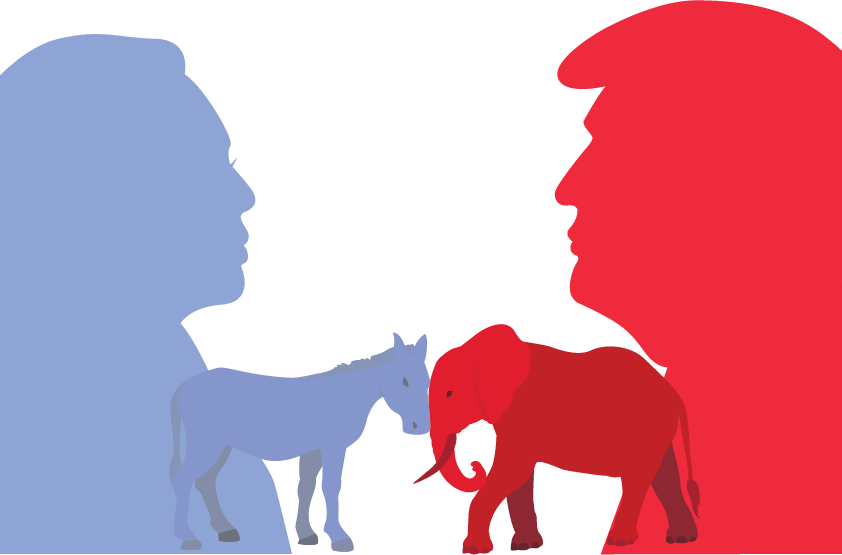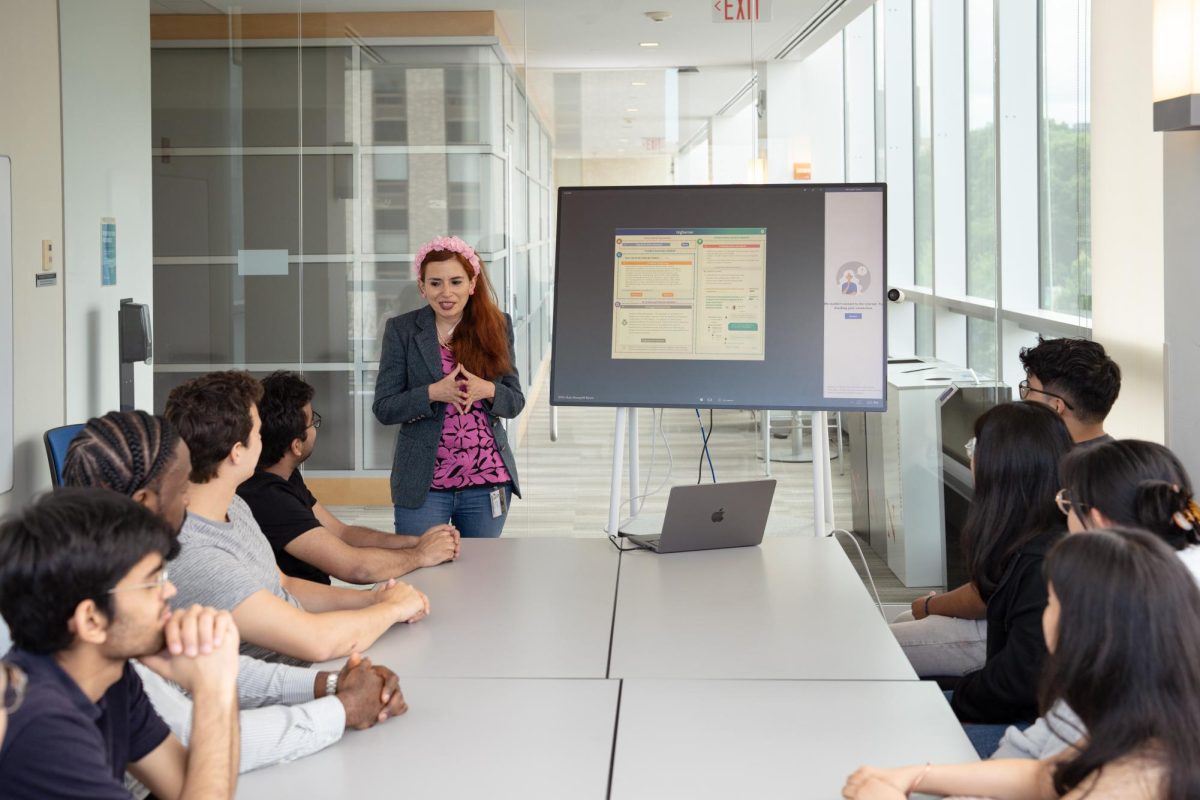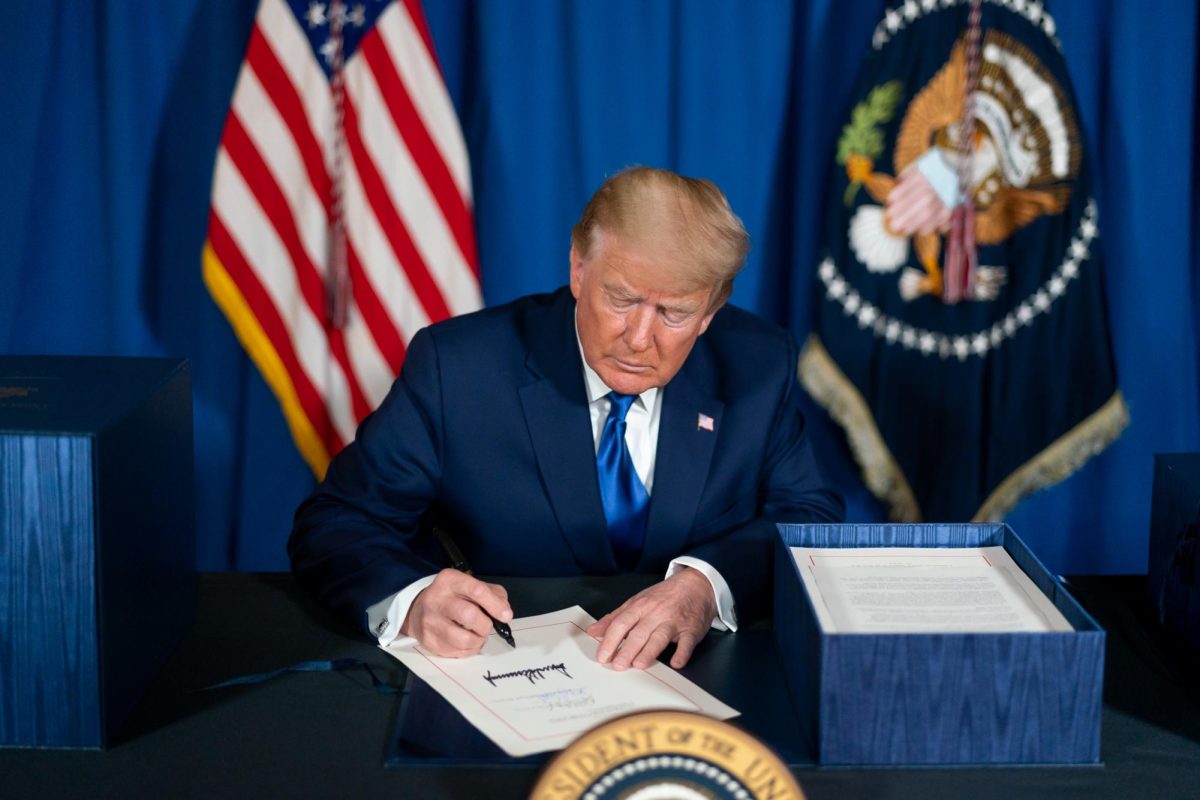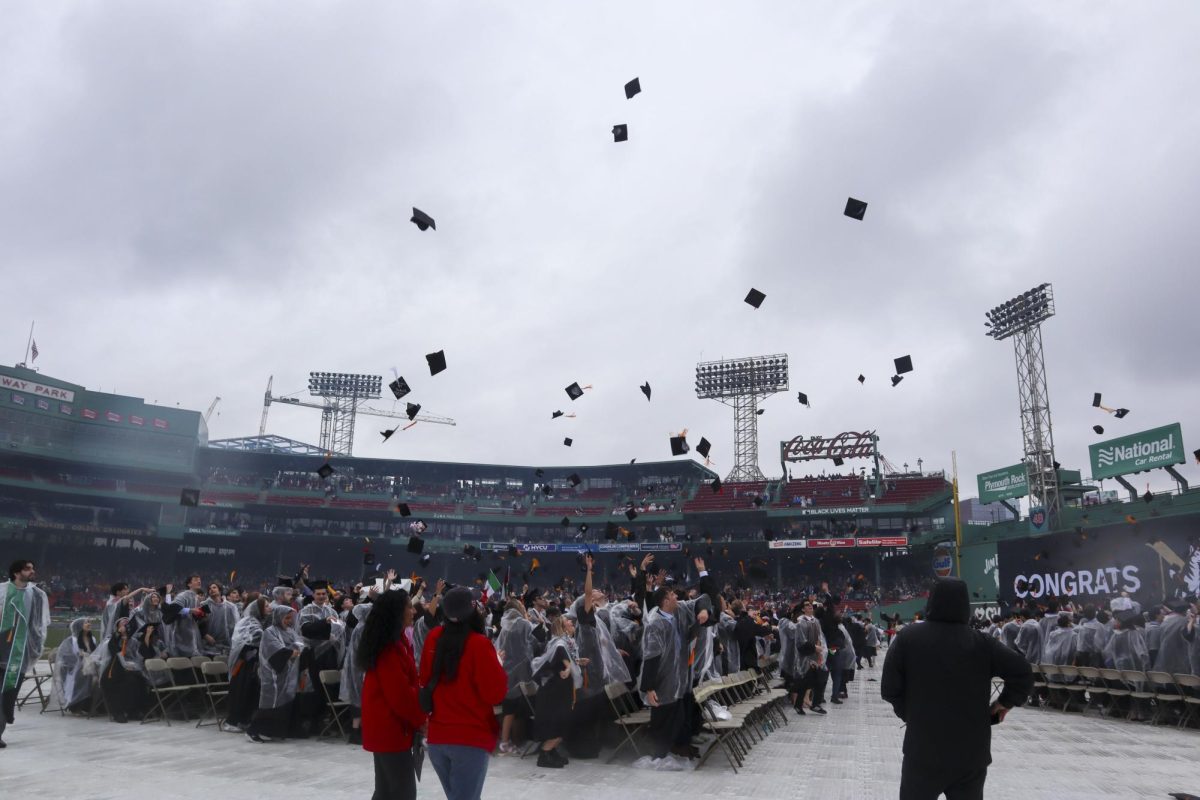As the 2024 presidential election approaches, students — many of whom are voting for the first time — are making decisions about who to cast their ballot for. The News sat down for interviews with the respective representatives of the Northeastern College Republicans and Northeastern College Democrats to gauge their views on both candidates, who they’re voting for and what their outlooks on some of this election’s most contested policy issues are.
Matt Cosentino is a fourth-year political science major and the vice president of the Northeastern College Republicans. He voted for former President Donald Trump in 2020, for Governor Ron Desantis during the 2024 Republican primary cycle and will be voting for Trump this November.
This interview has been edited for length and clarity.
The Huntington News: What values does the conservative movement embody?
Cosentino: Fundamentally, conservatism is the idea that the primary role of government is to protect inalienable rights and to make policy within the constitutional framework. As far as specific overarching policy views: fiscal conservatism, economic freedom, strong national defense, secure borders, safe streets and federalism. Generally erring on the side of states doing what the federal government isn’t specifically delegated to do and kind of acting as their own “laboratories for democracy.”
HN: Do your fellow students, many of whom lean left politically, foster a respectful political environment for Trump supporters?
Cosentino: I would say it depends. The Republican club doesn’t get protesters at our meetings, it’s not crazy or anything. As far as the tendency to speak up in class, I think there’s a hesitation, but I don’t think it’s the worst thing in the world that we’re not getting into political debates in the middle of class. I think there are some pockets of resentment, but it’s nothing that’s getting in the way of our ability to just operate as students.
HN: In 2020, Trump attempted to overturn the results of the election by pushing a so-called “fake elector scheme” and by pressuring members of the Department of Justice — as well as individual state officials — to falsely assert that there was widespread evidence of fraud. This culminated in the Jan 6th attack on the Capitol. How do you justify voting for someone who engaged in a concentrated effort to overturn the election?
Cosentino: I don’t personally think there’s enough evidence to determine that voter fraud did change the outcome. As far as Jan. 6 is concerned, I don’t think Trump specifically incited it, but I do think he gave his supporters false hope that Jan. 6 was the day the results could actually change. I think that rhetoric was not responsible, but I don’t think he encouraged specific violent acts.
As far as voting for him, that baggage is one of the reasons why I looked elsewhere in the primary. But ultimately, as far as voting for him in the general, I’m just comparing four years versus four years, essentially Trump versus [Joe] Biden and [Kamala] Harris.
HN: Trump has been indicted in three criminal cases, is the first American president to be convicted of a felony, and has been found liable for sexual abuse. How do you square your commitment to respecting the rule of law — as well as your adherence to conservative principles — while at the same time voting for a candidate who has broken the law and is widely seen as unprincipled?
Cosentino: I think if we’re looking at the rule of law holistically, just looking at the case in Manhattan, I would argue that a misdemeanor that was beyond the statute of limitations, (HN: due to a COVID-19-era ruling extending the statute of limitations for felonies in New York, the judge overseeing Trump’s case ruled that the case fell within the statute of limitations) and that being upgraded to a felony over a non-disclosure agreement, I don’t think that’s a very serious offense, but the jury made their decision.
So it certainly has the appearance, I would argue, of being politically motivated. But even if it didn’t, I personally don’t think a misdemeanor (HN: Trump was convicted of a felony, not a misdemeanor) over an affair and a non-disclosure agreement is the overarching issue in a presidential election. Even if people rightfully disagree with some of the comments Trump has made about women and about some of the things in his personal life, … to me, it’s not what I’m voting on in this election.
HN: Just as he did in 2016 and 2020, Trump is running on a platform to curtail government spending and bring down the national debt. Yet, during his four years as president, he added over $8 trillion to the national debt. For comparison, Biden has added about $4.3 trillion to the debt so far.
Why should voters trust Trump to cut government spending this time around when he failed to do so when he was in office?
Cosentino: I don’t think he’s going to cut government spending. I think he’s not going to try to go after long-term growth of entitlement programs. What Trump is calling for is keeping the spending levels basically where they are, and maybe trying to find waste, fraud and abuse, whereas the Democrats are just proposing a lot more than the current levels of spending.
So I see the election as the status quo fiscally versus trillions more in spending. And while neither is your ideal fiscal conservatism, I think Trump’s approach to spending is still better. Granted, I do think there’s a conversation to be had about whether Republicans have abandoned fiscal conservatism a little too much. Some of these issues are thorny issues politically, like talking about the future of social security and what adjustments need to be made to keep the program solvent. That’s generally bad politics, so I understand to some degree his instincts on that issue.
HN: On Ukraine, Trump has been very vocal about his belief that if elected, he would bring an end to the war “on day one.” Due to the situation on the ground today — with Russia controlling about 18% of Ukraine’s internationally recognized territory — implementing a deal “on day one” would likely benefit Russia more than it would Ukraine.
Trump often says that he will be tough on China, Russia, Iran, etc. How is pushing for a deal, which would leave Russia with a substantial chunk of Ukrainian land, be “tough on Russia?”
Cosentino: I think — and he’s been more nuanced on this issue because what he also said was if Russia doesn’t agree to stop fighting he’d be willing to give Ukraine more aid than we’ve given them already — his argument might be that right now we have a stalemate so the territory is going to be the same anyways, it’s just a question of the casualties.
Obviously, in a vacuum, it’d be great if Russia just gave up all the territory that they’ve taken. I think some would argue it’s unclear if that would be possible militarily just by giving Ukraine more aid. Some have argued that if aid had been given to Ukraine a little earlier, the war might be over already. And so as far as his actual actions as president, he did give Ukraine some lethal aid, and he did have a posture of deterrence in that respect, Russia didn’t gain territory when he was president.
HN: Trump has lambasted both Biden and Harris for the diplomatic pressure the U.S. has placed on Israel. Trump’s national press secretary said back in April that, “Jewish Americans are realizing that the Democrat Party has turned into a full-blown anti-Israel, antisemitic, pro-terrorist cabal, and that’s why more and more Jewish Americans are supporting President Trump.”
What actions has the Biden administration taken that in your view have been “anti-Israel?”
Cosentino: I think it’s been mixed. Generally, the Biden administration has been supportive of aid to Israel. There have been occasions where they’ve threatened to withhold aid to Israel, for example, when they went into Rafah where a lot of the hostages were. Generally, it’s the fact that there’s a lot of rhetoric in pockets of the left, not necessarily from Biden or [Secretary of State] Blinken or Harris, but in pockets of the left with influence in the Party that have taken a much more hardcore anti-Israel stance.
You see that on the fringier aspects of the online right as well, but it does seem to be a much bigger deal on the left, as far as just the percentage of Democrats that are blatantly anti-Israel and in some cases, even justifying or outright supporting stuff like Oct. 7. While Biden and Harris haven’t gone that far, they do seem to take a lot of halfway actions on Israel that you could argue is to placate those aspects of the Democratic base. But, I think, as far as specific actions, it would be the withholding of aid [when Israel] was to go into Rafah, for example.
HN: I asked the president of the Northeastern College Democrats to give me one question he would like to see you answer: Is Trump responsible for the events that unfolded on Jan. 6th?
Cosentino: I would say, for the most part, no, in a sense that he didn’t advocate for violent actions. I don’t think he wanted police officers to be assaulted. I do think some of his rhetoric gave people false hope that certain things could change the outcome. So I think that was irresponsible rhetoric, but I didn’t see anything in his speech that advocated specifically for breaking into a building or committing assaults on police officers.
HN: Imagine Trump were to win in November. What policies or actions would he have to enact for you to regret voting for him?
Cosentino: If he really did pull the U.S. out of NATO, I think that would be a mistake. I don’t think he’s going to do that, but hypothetically if he did, I think that would be wrong. Then, if he didn’t even make a sincere effort to cut out some of the [government spending] waste in an annual spending bill, I think that would be a missed opportunity.
As far as regretting voting for him, that’s a tough hypothetical because I think it would require him doing stuff that he’s not even proposing. I would hope that he doesn’t just completely abandon American leadership on the world stage as president. I would hope that some of his instincts on foreign policy don’t quite come to fruition. Sort of like how last time [during Trump’s presidency] a lot of his, I guess you could say worst tendencies, were kind of curbed by some people in his administration, like [former Secretary of State] Mike Pompeo or [former Vice President Mike] Pence or whoever else.
HN: Right, but he has made a big deal of saying that he regrets hiring those people, that he wants people that will not question him. This is a reason why, ostensibly, J.D. Vance was also chosen as his vice presidential candidate. Because he kind of swore loyalty to him by saying he wouldn’t have done what Pence did, that he would instead not have certified the election in 2020. Do you worry that there won’t be enough people within Trump’s inner circle this time around to stop him from, as you put it, “curbing his worst tendencies?”
Cosentino: As far as keeping him in line on certain things, like foreign policy, I think Vance will be less of a check. I think that’s mostly because ideologically, Vance is kind of more in line with a Trumpian foreign policy. But as far as I see right now, I don’t think that would have catastrophic consequences.
I think it’s always good to have people in your inner circle that push back just because it leads to better ideas. So I would hope that Vance would be constructive, and maybe he’s built up a strong enough relationship with Trump that if he disagrees with him here or there, Trump will be receptive. But I don’t think anyone can really push too far and continue to be in his administration.
The Huntington News is dedicated to serving the Northeastern University community with original, professional reporting and creating an environment in which student journalists can learn from one another. Support an independent, free press at Northeastern University with your donation today.


















